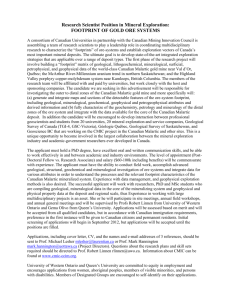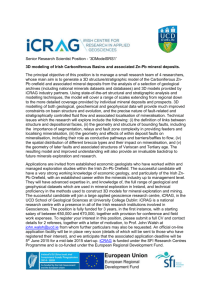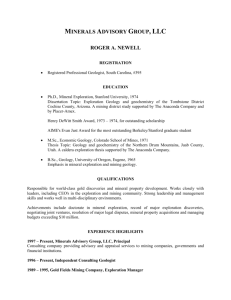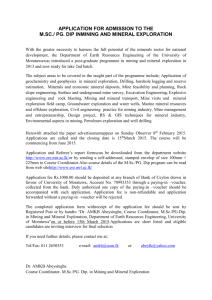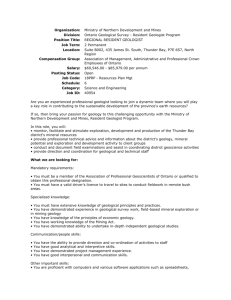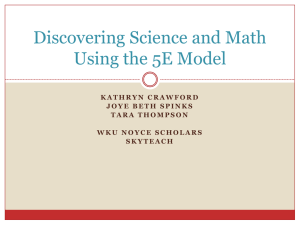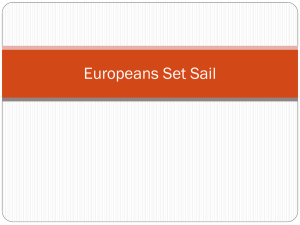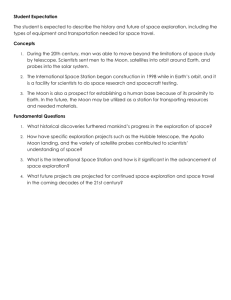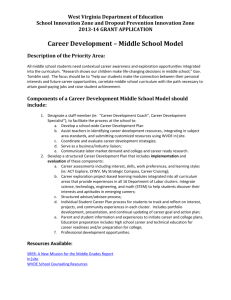Integrated Ore-System Footprints
advertisement
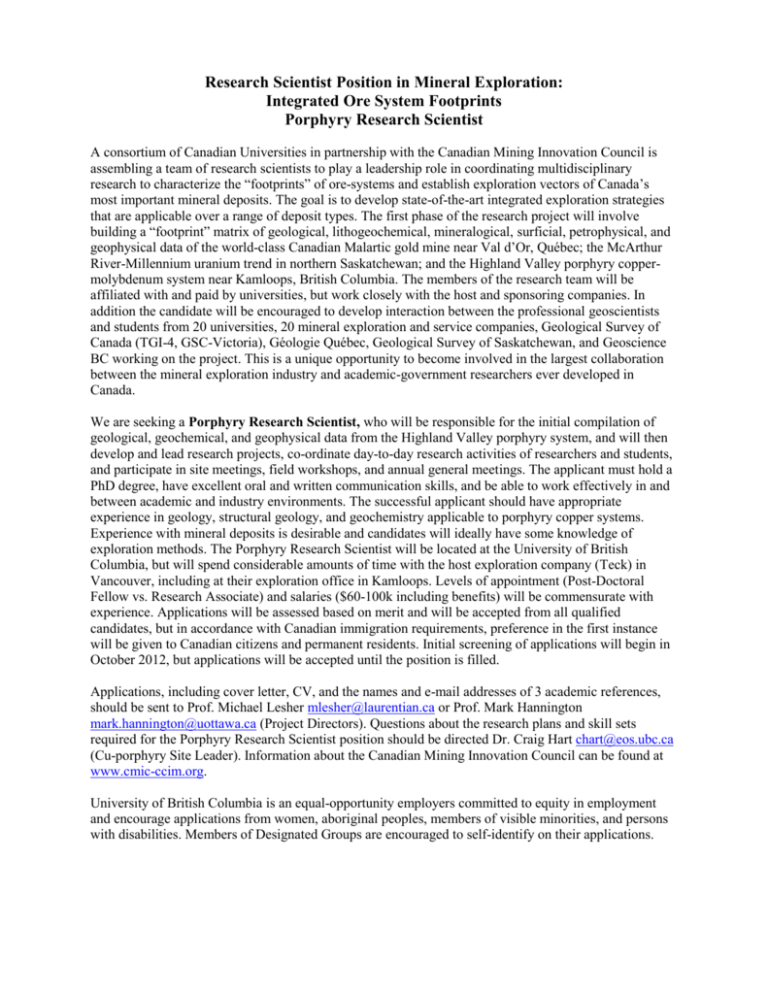
Research Scientist Position in Mineral Exploration: Integrated Ore System Footprints Porphyry Research Scientist A consortium of Canadian Universities in partnership with the Canadian Mining Innovation Council is assembling a team of research scientists to play a leadership role in coordinating multidisciplinary research to characterize the “footprints” of ore-systems and establish exploration vectors of Canada’s most important mineral deposits. The goal is to develop state-of-the-art integrated exploration strategies that are applicable over a range of deposit types. The first phase of the research project will involve building a “footprint” matrix of geological, lithogeochemical, mineralogical, surficial, petrophysical, and geophysical data of the world-class Canadian Malartic gold mine near Val d’Or, Québec; the McArthur River-Millennium uranium trend in northern Saskatchewan; and the Highland Valley porphyry coppermolybdenum system near Kamloops, British Columbia. The members of the research team will be affiliated with and paid by universities, but work closely with the host and sponsoring companies. In addition the candidate will be encouraged to develop interaction between the professional geoscientists and students from 20 universities, 20 mineral exploration and service companies, Geological Survey of Canada (TGI-4, GSC-Victoria), Géologie Québec, Geological Survey of Saskatchewan, and Geoscience BC working on the project. This is a unique opportunity to become involved in the largest collaboration between the mineral exploration industry and academic-government researchers ever developed in Canada. We are seeking a Porphyry Research Scientist, who will be responsible for the initial compilation of geological, geochemical, and geophysical data from the Highland Valley porphyry system, and will then develop and lead research projects, co-ordinate day-to-day research activities of researchers and students, and participate in site meetings, field workshops, and annual general meetings. The applicant must hold a PhD degree, have excellent oral and written communication skills, and be able to work effectively in and between academic and industry environments. The successful applicant should have appropriate experience in geology, structural geology, and geochemistry applicable to porphyry copper systems. Experience with mineral deposits is desirable and candidates will ideally have some knowledge of exploration methods. The Porphyry Research Scientist will be located at the University of British Columbia, but will spend considerable amounts of time with the host exploration company (Teck) in Vancouver, including at their exploration office in Kamloops. Levels of appointment (Post-Doctoral Fellow vs. Research Associate) and salaries ($60-100k including benefits) will be commensurate with experience. Applications will be assessed based on merit and will be accepted from all qualified candidates, but in accordance with Canadian immigration requirements, preference in the first instance will be given to Canadian citizens and permanent residents. Initial screening of applications will begin in October 2012, but applications will be accepted until the position is filled. Applications, including cover letter, CV, and the names and e-mail addresses of 3 academic references, should be sent to Prof. Michael Lesher mlesher@laurentian.ca or Prof. Mark Hannington mark.hannington@uottawa.ca (Project Directors). Questions about the research plans and skill sets required for the Porphyry Research Scientist position should be directed Dr. Craig Hart chart@eos.ubc.ca (Cu-porphyry Site Leader). Information about the Canadian Mining Innovation Council can be found at www.cmic-ccim.org. University of British Columbia is an equal-opportunity employers committed to equity in employment and encourage applications from women, aboriginal peoples, members of visible minorities, and persons with disabilities. Members of Designated Groups are encouraged to self-identify on their applications.
